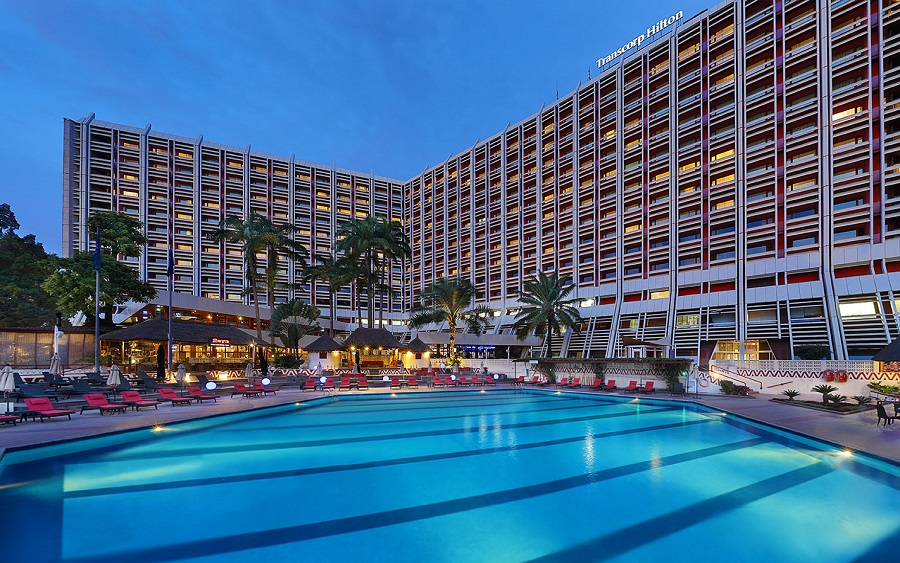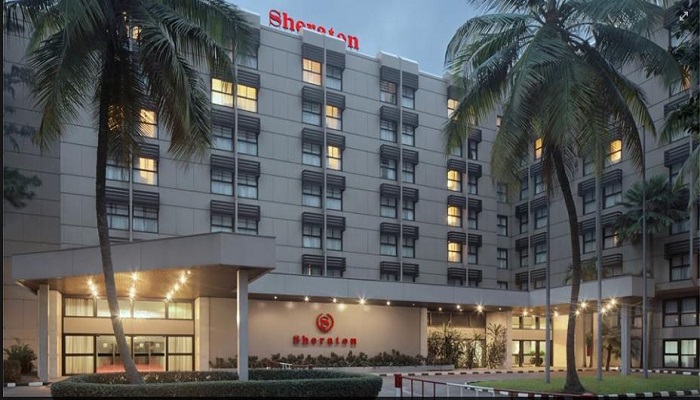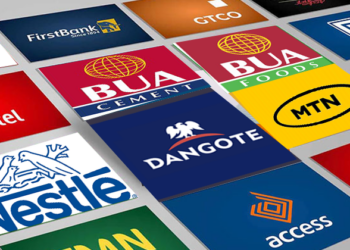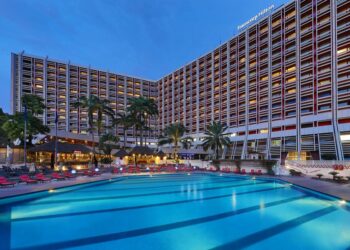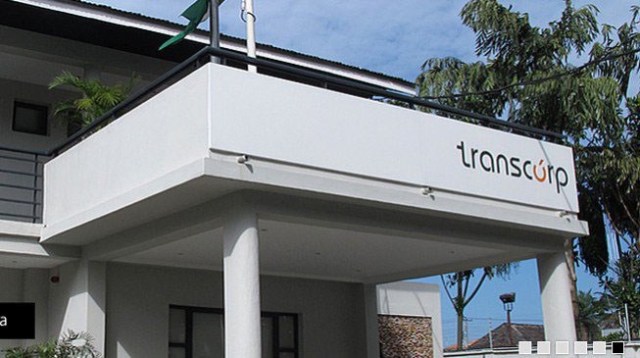Operators in the Nigerian hospitality industry have created opportunities for themselves amid the Covid-19 pandemic, in order to redefine value propositions and keep their heads above water.
To survive the negative impacts and ensure that they give their patrons reasons to continue patronizing their services, some of these hotels came up with initiatives like drive-in events, outdoor events, promotions, guest engagements, and group conference events, amongst others.
Transcorp Hotels
During its Q3 2020 Investors Call, the Managing Director of Transcorp Hotels, Dupe Olusola, told Nairametrics that though the revenue of the hotel, dropped by 54% year-on-year due to the lingering negative impact of Covid-19; Through the various initiatives implemented to reduce the impact of the pandemic, over 237% increase was recorded in Q3 revenue compared to that of Q2.
She said, “Drive-In Events product, launched in May, is for ‘top of mind’ awareness for the hotel amongst our targeted audience. It has also driven sales in the restaurant and other business areas within the hotel.
“Continuous promotion of our meetings, simplified product offerings like the Weekend Staycation, Work-From-Hotel package, amongst other initiatives, and have increased leisure business at the hotel.
“With the launch of EventReady and the CleanStay program, we have seen an increase in meetings.”
She added that the hotel had witnessed improvement in room revenue, majorly driven by the transient and group segments, as well as its continuous marketing campaign of hotel offerings.
(READ MORE: As Hotels resume operations, how prepared are they?)
She said, “Our Weekend Staycation is to attract both Abuja residents and potential guests from other states, in order to drive local and leisure demands.”
Ikeja Hotels Plc
Ikeja Hotels Plc also adopted some initiatives across its hotel chain to survive the pandemic. A staff of Sheraton Hotel Ikeja, who preferred anonymity, as she was not permitted to discuss on behalf of the hotel, told Nairametrics that the hotel had adopted some initiatives like outdoor events and promotions to attract more patrons.
She said, “As part of our strategy to improve operational efficiencies, we have put in place cost-cutting and recovery measures, including negotiating vendor contracts, energy conservation, and optimizing our workforce to the required manning at different occupancy levels.
“Our Food and beverage revenue has improved, driven mainly by the conference and event businesses. We recorded a week on week increase in the month of October.”
(READ MORE:COVID-19: Hotels.ng partners others to provide self-isolation centres for Nigerians)
L’eola Hotel
In the case of L’eola Hotel, formerly known as Protea Hotel, surviving the challenges created by the pandemic is key and this made the hotel to introduce some initiatives.
In an interview with Nairametrics, its Deputy General Manager, Tunde Oduyoye, explained that the hotel had to invest more on social media tools to reach out to its clients and also to meet the needs of some patrons, who wanted to hold social gatherings despite the social distancing rule.
He said, “We just did a photoshoot, which we shared with our existing and potential clients via our social media tools, to remind our patrons that we are back and fully compliant with the Covid-19 protocols.
“We now host weddings and other occasions and Zoom to other guests that cannot attend physically due to social distancing rules. We also host occasions on our open field to guarantee the safety of our patrons.
“We deliver food to our clients and also engage Jumia for deliveries. The hotel has also started baking bread for lodging guests and others within and outside the community.”
(READ MORE:Experts wary of profit-taking, but remain bullish long term on Nigerian Stocks)
Radisson Blu Anchorage Hotel
Like other hotels earlier mentioned, Radisson Blu also adopted several measures to remain relevant to its patrons.
In an interview with Nairametrics, a source at the Hotel, who preferred anonymity, as he was not permitted to speak on behalf of the hotel, disclosed that it had adopted an outdoor catering service for both corporate clients and individuals.
He said, “Continuous promotion of our product offerings and other initiatives, has boosted patronage in our hotel. We now offer outdoor events and new discount rates for using our facilities. With this development, we have seen an increase in meetings at the hotel, compared with when the lockdown was eased few months back.”
What the future holds
Hotels in Kenya, Egypt, and South Africa rely on local tourism to drive occupancy rates. In contrast, locals in Nigeria prefer smaller mushroom hotels that are cheaper and often well-furnished to meet their needs, especially the short-stay apartments.
Hence, hotels in Nigeria rely on commercial room sales, driven by the influx of business and leisure travels into the country.
With several airlines yet to be fully operational due to reciprocal bans and lockdowns in some countries, it is highly unlikely that things will improve anytime soon.
(READ MORE: FG reopens the financial sector, hotels as bars and nightclubs remain closed)
What you should know
The lockdown effect on the revenue of these hotels is reflected in the 2020 Q2 results of the main listed hotels.
According to the data, Ikeja Hotels (Sheraton), Tourist Company of Nigeria (Federal Palace), Capital Hotels (Abuja Sheraton), and Transcorp Hilton Hotel Plc all lost 90% of their revenue in the three months preceding June 2020.
- The hotels earned a combined revenue of N1 billion in the quarter, compared to N10.2 billion in the corresponding period of 2019.
- They lost over N4.7 billion for the quarter alone.
- Combined, they had about 3,502 employees as of 2019.

